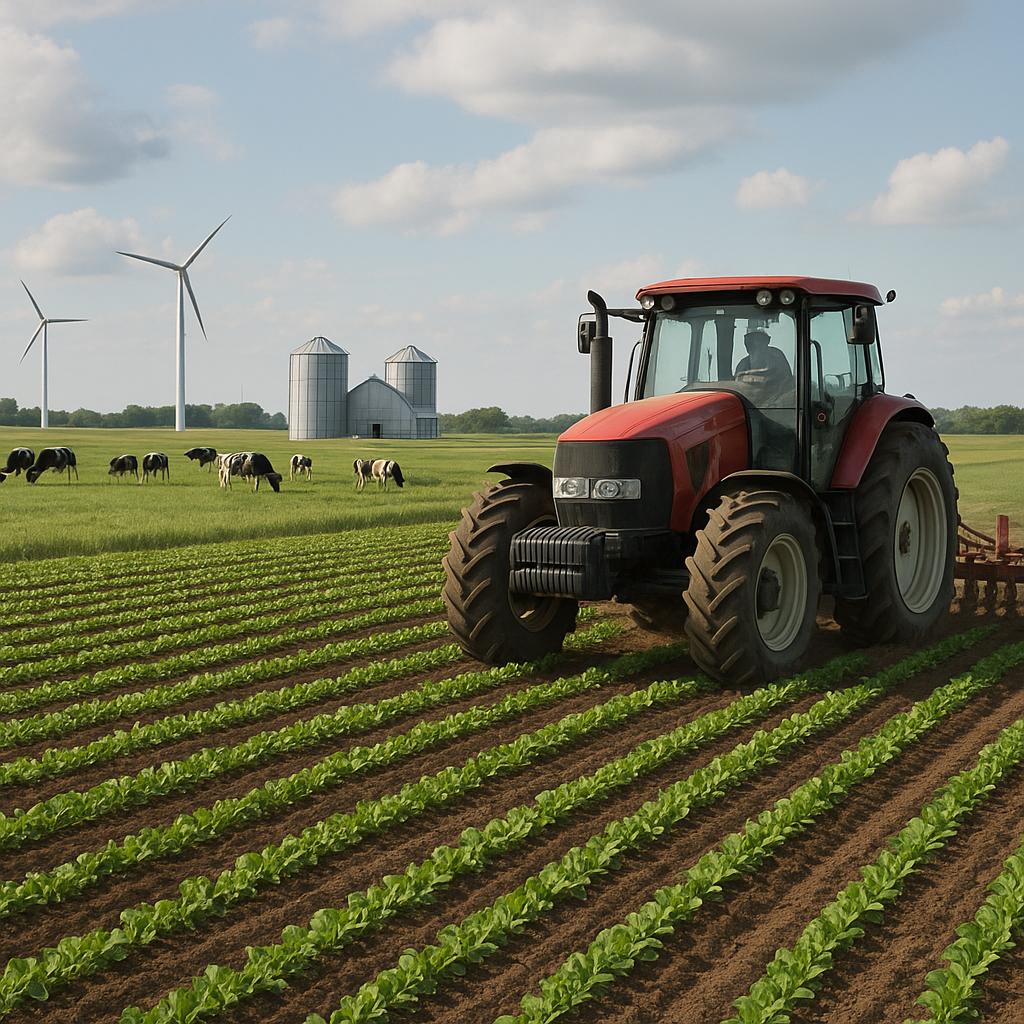The role of education in fostering sustainable farming is crucial for the future of agriculture and the environment. As the global population continues to grow, the demand for food increases, putting pressure on farming practices to become more efficient and environmentally friendly. Education serves as a powerful tool in equipping farmers with the knowledge and skills necessary to implement sustainable practices that not only enhance productivity but also protect natural resources. This article will explore the various dimensions of education in sustainable farming, including its impact on farmers, communities, and the environment.
Understanding Sustainable Farming
Sustainable farming refers to agricultural practices that meet current food needs without compromising the ability of future generations to meet their own needs. This approach emphasizes the importance of maintaining ecological balance, conserving biodiversity, and minimizing environmental impact. Sustainable farming encompasses a variety of practices, including crop rotation, organic farming, agroforestry, and integrated pest management. Education plays a pivotal role in promoting these practices by providing farmers with the necessary knowledge and resources.
The Importance of Agricultural Education
Agricultural education is essential for fostering sustainable farming practices. It encompasses a wide range of topics, including soil health, water management, pest control, and crop selection. By educating farmers about these subjects, they can make informed decisions that lead to more sustainable outcomes. Here are some key aspects of agricultural education:
- Knowledge Transfer: Education facilitates the transfer of knowledge from research institutions to farmers. This includes the latest advancements in sustainable farming techniques and technologies.
- Skill Development: Training programs help farmers develop practical skills necessary for implementing sustainable practices, such as organic farming methods and efficient irrigation techniques.
- Community Engagement: Educational initiatives often involve community participation, fostering a sense of collaboration among farmers and encouraging the sharing of best practices.
- Access to Resources: Education provides farmers with information about available resources, including grants, subsidies, and technical assistance programs that support sustainable farming.
Impact of Education on Farmers
The impact of education on farmers is profound, influencing their practices, productivity, and overall well-being. Educated farmers are more likely to adopt sustainable practices, leading to numerous benefits:
Enhanced Productivity
Farmers who receive education on sustainable practices often experience increased productivity. By understanding the principles of crop rotation, soil health, and pest management, they can optimize their yields while minimizing inputs. For example, a farmer who learns about cover cropping can improve soil fertility and reduce erosion, leading to healthier crops and higher yields.
Economic Benefits
Investing in education can lead to significant economic benefits for farmers. Sustainable practices often reduce input costs, such as fertilizers and pesticides, resulting in higher profit margins. Additionally, educated farmers are better equipped to access markets and negotiate fair prices for their products. They can also diversify their income streams by exploring organic certification or value-added products, further enhancing their economic resilience.
Environmental Stewardship
Education fosters a sense of environmental stewardship among farmers. When they understand the impact of their practices on the ecosystem, they are more likely to adopt measures that protect natural resources. For instance, farmers educated about the importance of biodiversity may implement practices that promote habitat conservation, benefiting both their farms and the surrounding environment.
Community and Societal Impact
The benefits of agricultural education extend beyond individual farmers to entire communities and society as a whole. Sustainable farming practices contribute to food security, environmental health, and economic stability.
Food Security
Education plays a vital role in enhancing food security by promoting sustainable farming practices that increase food production. As farmers adopt methods that improve soil health and reduce dependency on chemical inputs, they can produce more food sustainably. This is particularly important in regions facing food scarcity, where educated farmers can make a significant difference in local food systems.
Community Resilience
Communities with educated farmers are often more resilient in the face of challenges such as climate change and economic fluctuations. By adopting sustainable practices, farmers can better withstand adverse conditions, ensuring a stable food supply for their communities. Furthermore, educated farmers are more likely to engage in community initiatives, sharing knowledge and resources that benefit everyone.
Social Equity
Education in sustainable farming can also promote social equity by empowering marginalized groups, including women and smallholder farmers. Access to education and training programs enables these individuals to improve their farming practices, increase their income, and contribute to their communities. This empowerment fosters a more equitable agricultural system, where all farmers have the opportunity to thrive.
Challenges and Opportunities in Agricultural Education
While the benefits of agricultural education in fostering sustainable farming are clear, several challenges must be addressed to maximize its impact.
Access to Education
One of the primary challenges is ensuring access to education for all farmers, particularly those in remote or underserved areas. Many farmers lack access to formal education and training programs, limiting their ability to adopt sustainable practices. Innovative solutions, such as online courses, mobile training units, and community workshops, can help bridge this gap and reach a wider audience.
Integration of Traditional Knowledge
Another challenge is integrating traditional knowledge with modern agricultural practices. Many indigenous and local farming communities possess valuable knowledge about sustainable practices that have been passed down through generations. Educational programs should recognize and incorporate this knowledge, creating a more holistic approach to sustainable farming education.
Collaboration and Partnerships
Collaboration between various stakeholders, including government agencies, NGOs, research institutions, and farmers, is essential for effective agricultural education. By working together, these entities can develop comprehensive training programs that address the specific needs of farmers and promote sustainable practices. Partnerships can also facilitate resource sharing and knowledge exchange, enhancing the overall impact of educational initiatives.
Conclusion
The role of education in fostering sustainable farming cannot be overstated. By equipping farmers with the knowledge and skills necessary to implement sustainable practices, education contributes to enhanced productivity, economic resilience, and environmental stewardship. Furthermore, the benefits extend to communities and society as a whole, promoting food security and social equity. Addressing the challenges of access, integration of traditional knowledge, and collaboration will be crucial in maximizing the impact of agricultural education. As we move forward, investing in education will be key to building a sustainable agricultural future that meets the needs of both current and future generations.




